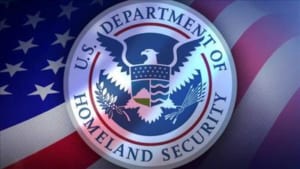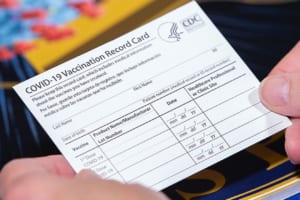


Effective immediately, the United States Department of Homeland Security (“DHS”) will begin considering a foreign national’s antisemetic activity on social media and the physical harassment of Jewish individuals as grounds for denying immigration benefits. The new policy, which is consistent with President Donald Trump’s Executive Orders on Combatting Antisemetism, Additional Measures to Combat Antisemitism and Protecting the United States from Foreign Terrorists and Other National Security and Public Safety Threats; will apply to foreign nationals applying for an adjustment of status, foreign students on F-1 and M-1 student visas and those affiliated with educational institutions linked to antisemetic activity. The United States Department of State provides a working definition of antisemitism as “certain perception of Jews, which may be expressed as hatred towards Jews. Rhetorical and physical manifestation of antisemitism are directed toward Jewish or non-Jewish individuals and/or their property, toward Jewish community institutions or religious facilities.” Under the new

As posted on the United States Citizenship and Immigration Services (“USCIS”) website, on January 20, 2025, President Trump issued Executive Order (“EO”) 14159, “Protecting the American People Against Invasion”. The EO directs the Department of Homeland Security (“DHS”) to ensure that aliens comply with their duty to register with the government. Failure to comply with the registration requirement is treated as a civil and criminal enforcement priority. The DHS requires that, with limited exceptions, all aliens 14 years of age or older who were not registered and fingerprinted (if required) when applying for a U.S. visa, and who remain in the United States for 30 days or longer, must apply for registration and fingerprinting. Similarly, parents and legal guardians of aliens below the age of 14 must ensure that those child aliens are registered. Within 30 days of reaching his or her 14th birthday, all previously registered aliens must apply for re-registration

Effective March 11, 2025, The United States Center for Disease Control (“CDC”) has removed from the technical instructions to panel physicians the requirement that immigrant visa applicants receive the COVID-19 vaccination. Panel physicians will no longer determine that an immigrant visa applicant is ineligible for travel based on their failure to receive, or otherwise document, their vaccination against COVID-19. Based on CDC’s updated guidance to panel physicians, which is inline with the recent United States Citizenship and Immigration Services policy, Embassies and Consulates will no longer refuse an immigrant visa application for failure to present documentation that they received the COVID-19 vaccination. Applicants whose medical exams are unexpired and otherwise still valid for travel to the United States, and whom a consular officer previously found ineligible based solely on the applicant’s failure to establish vaccination against COVID-19, may have a new medical exam issued by the panel physician without a
Copyright 2012 – 2024 Enterline and Partners Consulting | All Rights Reserved



